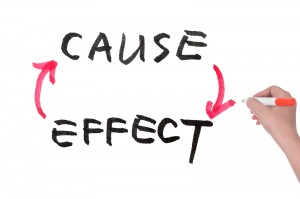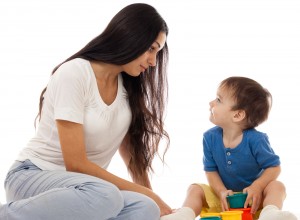
The fact that your actions have consequences is a concept that young children don’t always understand. When they are babies, the world revolves around them. Their desires and needs are more important than anyone else’s, and because they’re so important, they come to believe that they can do whatever makes them feel good in the moment, which is as it should be. They don’t have the capacity to recognize that their behavior impacts others.
To some people, this may sound good. After all, you’re on this earth to experience joy. Being happy is important and you know that you must be happy and keep your vibration up if you’re going to attract good things into your life.
Why is it important that children learn about consequences? How can you teach them to take certain actions without bringing down their vibration? Even more importantly, how do you demonstrate that modifying their behavior doesn’t mean they should ignore their own needs and desires?
Because it is essential in society that we recognize and respect other people, it’s important for kids to learn how their actions might impact others. This doesn’t mean that you want to raise your children to be doormats, but you want them to be able to identify their needs and desires, while carefully considering how their actions may impact the people around them.
You want them to know the difference and to understand when some of their desires may have a negative effect on others. You should also show them how modifying their behavior doesn’t necessarily mean that their desires won’t be met.
This is what you do when you teach children to share. You’re teaching your kids to recognize that other people have feelings, needs, and desires, too. Kids begin to learn that the consequences of not sharing their toys may mean feeling the displeasure of their parents and also their friends.
Every day, we are all faced with making decisions. You’ll have a better chance of being truly happy with the outcome when you can see far enough ahead to predict what the consequences may be. This is a skill that you acquire with practice, coaching, and maturity.
Adults know that if they drink too much alcohol, they might do something they regret while impaired or have one painful headache the next morning. By knowing the consequences before taking action, you can choose to modify your behavior.
Some people will decide they can live with the headache, but they will have a designated driver or call a cab so they don’t risk having an accident. Some people will choose not to drink at all because they don’t like the potential consequences, and after checking with their Internal Guidance System, they decide that not drinking is the right path for them. Many others will fall somewhere in between these two outlooks by enjoying a cocktail or two, but only enough to be social or to relax. They won’t drink enough to become impaired.
That’s an adult example of why it’s important to understand consequences, but not necessarily how you want to teach the lesson to your children.
A more kid-friendly way to demonstrate the consequences of an action is with a simple houseplant. When you nurture the plant, giving it the water and sunlight that it needs, the plant will flourish. If you don’t feel like watering the plant because you’re too busy playing, the plant may survive for a few days, but will begin to wilt and ultimately die.
With a simple example, kids learn about taking on a responsibility and what happens if they shirk that responsibility. Does it require modifying their behavior? A little bit, but only for a short time. It doesn’t preclude them from going out to play. Instead, it’s just a short delay.
Many types of consequence occur in your everyday life, which you can use to help your children to understand this message. You close the windows in the car to keep the weather and bugs out. You walk the dog so it doesn’t soil the carpet. You refrigerate some foods so that they don’t spoil, and so on.
Sometimes, you learn that considering the consequences of an intended action are worth it. You like parking in the shade of trees to keep your car cool. And you feel pleasure in hearing birds sing.
But if you want to hear the birds sing, sometimes, you just have to accept a little birdie business on the windshield.
Your comments are welcome.
© 2014. Sharon Ballantine. All Rights Reserved.

